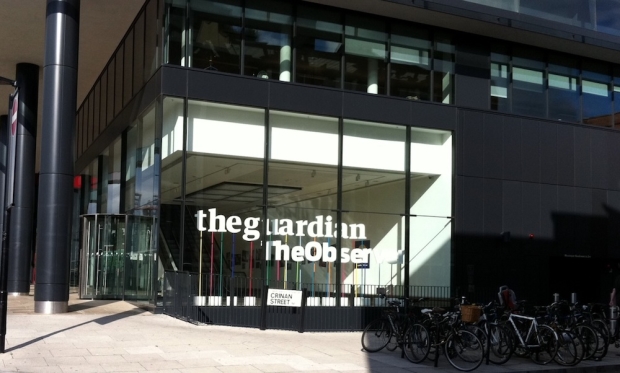As theatre coverage is cut, we all need to start shouting louder

© Stephen Curry (CC BY-NC 2.0)
There was a scene in the second episode of Broadchurch where the angry local newspaper editor confronted her new boss, who had just told her that coverage was going to be centralised and syndicated from the large town nearby. "That's not local news," the editor said. "That doesn't serve the community."
The character of the editor promptly vanished from the next gripping instalment, presumably on the entirely reasonable grounds that the fate of the Broadchurch Echo is of less gripping concern to viewers than finding out who raped poor Trish. But the scene stayed with me. I began my career on a local newspaper and one of my tasks, on a Saturday, was to go round the local factory cricket club sports grounds and collect their scores which were duly reported in The Pink, the Coventry Evening Telegraph's bespoke sports paper.
It sounds as if I am talking about the Dark Ages, but it wasn't that long ago that people thought serving the community – even if that amounted to about five cricket fanatics – mattered. By giving them the news that they wanted, you built up a broad coalition of people who thought that your paper was a good thing and would continue to try to buy it.
The decision to cut Lyn Gardner's blog seems to run counter to what we see on the ground
Times change. Legacy media, as papers have come to be called, no longer see their role in that way. I have been an editor for too long in my life to want to query a paper's decision when it comes to shaping their coverage: what a car looks like from the outside might not be quite the same as the picture when you lift the bonnet. Nevertheless The Guardian's decision to curtail Lyn Gardner's blogs, which often covered the more local, more recondite and more in-depth theatre news that other blogs did not reach, has sent a strange message to the paper's readers.
A lot of The Guardian's authority – and as someone who worked for a long time for a rival newspaper, it was something I always envied – springs from its willingness to gaze hard at places other people do not go. It is clear from the outraged reaction to the news of the change in Gardner's contract, that the theatre community is shocked by the decision. It seems to run counter to what we see on the ground; a vibrant theatre culture that thrives in spite of constant financial constraints, an audience that is anxious to watch and read about new developments.
It's only when something bad happens that art-lovers start shouting
In one of those serendipitious moments, Alex Ross, the brilliant music critic of the New Yorker, has just written about the decline of serious criticism in America. It is a magnificent piece and I suggest you read it. But he makes a similar point. The cuts in coverage are happening in the face of every indication that the audience listening to classical music is healthy and interested.
But it is not, of course, a mass audience. It is a large, committed group – just like theatre goers – but it is passive rather than active, not used to making itself heard, a silent minority of committed readers whose needs are no longer regarded as vital enough to serve. Its online clicks on any particular story, rarely rise to the same numbers as those who want to hear about the latest movie blockbuster or TV show. But it is substantial nonetheless.
The trouble is, it is also rather quiet and polite. My favourite statistic has always been that more people go to London theatre in one year than attend all Premier League football matches. Yet you would never know that from the relative importance attached to football and theatre in the general culture.
It's only when something bad happens that art-lovers start shouting. I feel we should be talking all the time about how much we love the arts, how much we value in depth coverage, how much we want our interests to be accorded some status and our tastes acknowledged. We need to be lobbying our MPs about how much we value our regional theatres, our aspiring writers, our experimental theatre-makers. We need to be so noisy, that we can't be ignored. We may not be the majority, but we do matter.
Just like the local newspaper editor in Broadchurch. I've got money on her local knowledge helping to solve the crime.











